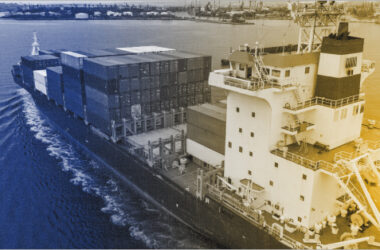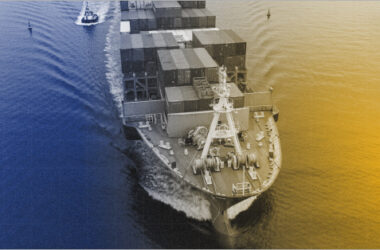Insurance plays a crucial role in protecting businesses from potential risks and financial losses. Two common types of insurance policies used by companies involved in international trade are the sales turnover policy and the marine open policy. In this article, we will explore the major points of differences between these two policies and discuss their respective benefits.
Difference between the Sales Turnover Policy and the Marine open policy:
A Sales Turnover Policy is a comprehensive insurance solution that covers various types of transits under a single policy. It encompasses exports, imports, domestic transits, as well as other inland transits like internal transport return transits and job works. By opting for a sales turnover policy, businesses can ensure all their transit needs are covered with ease.
On the other hand, a Marine Open Policy is a form of marine insurance that covers multiple shipments for a period of 12 months, depending on the sum insured. Adjustments are carried out using the diminishing balance approach against the value of each cargo and the sum insured sum is usually high. When traders need to send out cargo regularly over a certain length of time, they opt for a marine open policy. According to the general rule, the sum insured in a marine open policy must be at least four times the limit per shipping or single carrying limit.
Premium Charges:
One significant difference between these two policies lies in how premiums are calculated. For a sales turnover policy, the premium is charged based on the annual sales value of the organization. This makes it relatively easier for businesses to manage their insurance costs since they have an estimate of their yearly earnings.
Conversely, in an open marine policy, the premium is typically paid in advance according to the anticipated sum insured. Due to adjustments in the policy’s sum insured, the premium and sum insured are changed in accordance with the submission of every single voyage declaration. After careful scrutiny, revisions are allowed in the event of any real omissions or false statements. The premium on the unadjusted sum insured may be refunded once the contract expires.
Operational Processes:
Another key distinction between these sales turnover and marine open policy relates to operational processes and documentation requirements.
Under a sales turnover policy, organizations only need to declare their sales transits during its validity period without requiring monthly declarations or replenishments unless there are substantial changes in business activities.
In contrast, marine open policies necessitate frequent declarations of all transits, including imports, exports, and domestic movements. This means that businesses must declare each transit monthly to ensure comprehensive coverage. Any exhaustion or completion of a particular leg would need replenishment to cover future transits. Consequently, managing an open policy becomes more complex operationally as organizations need to track and manage numerous declarations regularly.
Example Scenario:
To better understand how these policies work in practice, let’s consider the case of a manufacturing firm involved in the production of electronics. The company procures raw materials from overseas suppliers and sells finished goods both domestically and internationally.
In such a scenario, opting for a sales turnover policy would be advantageous for several reasons. Firstly, it simplifies insurance management by covering all types of transits under one comprehensive policy. Secondly, it offers cost efficiency since premiums are based on the organization’s annual turnover rather than every individual transit leg.
Moreover, due to its simplicity and ease-of-use nature regarding documentation requirements compared to an open marine policy with frequent monthly declarations and possible exhaustion/replenishments; companies can focus more on their core business activities without being burdened by excessive administrative tasks.
Conclusion:
Choosing the right insurance policy is vital for businesses engaged in international trade or those requiring comprehensive transit coverage. While sales turnover policies provide convenience through their wide-ranging coverage options and simplified operational processes based on annual turnovers; marine open policies offer flexibility but come with higher costs due to separate insurances required for different legs of transit.
Ultimately, businesses should assess their specific needs before making an informed decision about which type of policy suits them best. By understanding the differences between sales turnover policies and marine open policies outlined in this article entrepreneurs will be able to make confident choices when protecting their enterprises against potential risks during various stages of transportation.








